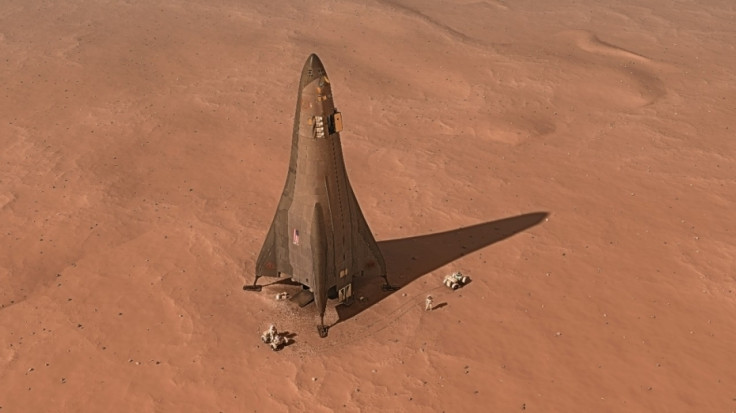Lockheed Martin unveils a re-usable water-powered lander to ferry humans to Mars
Orbiting space station would allow astronauts carry out explorations of the Red Planet.

This year's International Astronautics Congress in Adelaide has been abuzz with talk of future Mars missions. Today (29 September) Elon Musk finally announced SpaceX's plans to send humans to the Red Planet by the 2020s, and to eventually to set up a colony there.
But other intriguing ideas were also put forward for the exploration of our planetary neighbour. Not to be outdone, defence giant Lockheed Martin has unveiled plans for a reusable, water-powered Mars lander which will enable humans to explore the Red Planet from an orbiting 'base camp' by the 2030s.
The innovative lander forms part of Lockheed's Mars Base Camp project, essentially a planetary science lab which will put researchers in orbit around Mars, allowing them to perform extensive, real-time analysis of the surface before identifying suitable regions for humans to subsequently land.
The Mars orbiter space station will feature the world's only deep-space crew capsule – known as Orion - designed with long-duration life support systems and innovative deep space communications and navigation technology.
"Sending humans to Mars has always been a part of science fiction, but today we have the capability to make it a reality," said Lisa Callahan, vice president and general manager of Commercial Civil Space at Lockheed Martin.
The reusable lander would be able to descend to the surface of Mars using special propulsion systems with up to four astronauts on board. After the completion of the mission, which could last up to two weeks, the lander would ferry the astronauts back to the orbiter.

Furthermore, it would be powered by liquid nitrogen or liquid oxygen fuel which could be sourced from water deposits using another purpose-built spacecraft – the imaginatively named Water Delivery Vehicle.
There is currently intense interest in human exploration of the Red Planet. Nasa is currently preparing for the Mars 2020 rover mission which forms part of its long-term Mars Exploration Programme. Amongst other things, these missions will provide opportunities to gather knowledge about Mars in order to address the challenges of any future human expeditions.
© Copyright IBTimes 2025. All rights reserved.





















